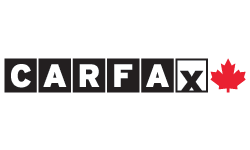Langley, BC – With British Columbia’s Economic Update revealing a substantial debt and deficit, the New Car Dealers Association of BC (NCDA) is warning that adding new or higher taxes in this environment would be deeply counterproductive – hurting families and businesses and ultimately have diminishing returns for the province itself.
Affordability challenges continue to mount across the board as families struggle to make ends meet amidst the rising cost of housing, childcare, food and other day-to-day necessities. For many, the cost of a new vehicle is not achievable, with the average price reaching $66,000 as auto manufacturers invest billions of dollars into new technology and safety features.
Dealers are also struggling with escalating operating costs — from municipal property tax hikes in the hundreds of thousands of dollars, to higher parts and vehicle costs caused by tariffs and global supply chain disruptions.
“Every additional tax or levy weakens affordability, erodes competitiveness, and pushes consumers to look to other jurisdictions to purchase a vehicle,” said Blair Qualey, President and CEO of the NCDA. “At some point, the government’s own revenues will continue to decline because people simply can’t or won’t buy in BC.”
Mounting Pressures on Consumers and Dealers
- Consumer affordability – Rising prices and interest rates are straining families, with dealers hearing anecdotally that an increasing number of British Columbians are crossing into Alberta to purchase vehicles at a lower cost, taking sales and tax revenues out of BC.
- Tax burden – The provincial “luxury” vehicle tax threshold of $55,000 has not been adjusted for inflation, unfairly capturing ordinary pickups, SUVs, and vans that are work and family necessities.
- Regulatory mandates – Despite clear warning signs, the BC government has not put the brakes on its zero-emission vehicle sales mandates. In response, manufacturers are cutting allocations of internal combustion engine (ICE) vehicles to BC, facing $20,000 per-vehicle penalties if they don’t meet the aggressive quotas. This leaves rural and remote regions in particular, with fewer vehicle options and rising costs.
- EV market uncertainty – Consumer hesitation is growing as EV prices remain high, charging infrastructure is limited or unreliable, and the CleanBC Go Electric Rebate Program remains paused.
- Dealer investments – Dealers are being asked to pour capital into EV infrastructure, diagnostics, and training, while simultaneously absorbing higher costs and weaker sales.
“These pressures aren’t just adding up — they are compounding,” said Qualey. “Tax fatigue is real, and adding more layers will only shrink the market and reduce the very revenues government is counting on.”
The NCDA is urging government to follow the Fall Economic Update with concrete action to relieve pressure on consumers and businesses, not add to it. Priorities include:
- Adjusting the luxury vehicle tax threshold to reflect real-world prices, advanced safety technologies and inflation.
- Putting the brakes on ZEV mandate timelines to ensure consumer demand, infrastructure, and supply can realistically keep pace.
- Reinstating stable and predictable EV rebate programs while expanding charging infrastructure beyond urban centres.
- Resisting any increases to the PST or introduction of new taxation measures, recognizing that further pressure will drive away sales, jobs, and tax revenue.
“The auto sector supports 30,000 family-sustaining jobs and generates nearly $17 billion in annual retail sales,” added Qualey. “But the system is reaching a breaking point. If governments continue to add layer after layer of taxation and mandates without relief, the result will be fewer sales, fewer jobs, and less revenue for the province. No one wins in that scenario.”
About the NCDA: The New Car Dealers Association of BC (NCDA) represents over 400 new car and truck dealers throughout British Columbia who provide 30,000 family supporting jobs and are responsible for close to $17 billion in retail sales in the province. The Association speaks on behalf of the retail automotive industry and advocates on legal, environmental, and consumer issues relating to vehicle sales in British Columbia.
Contact:
Kelly Gleeson










